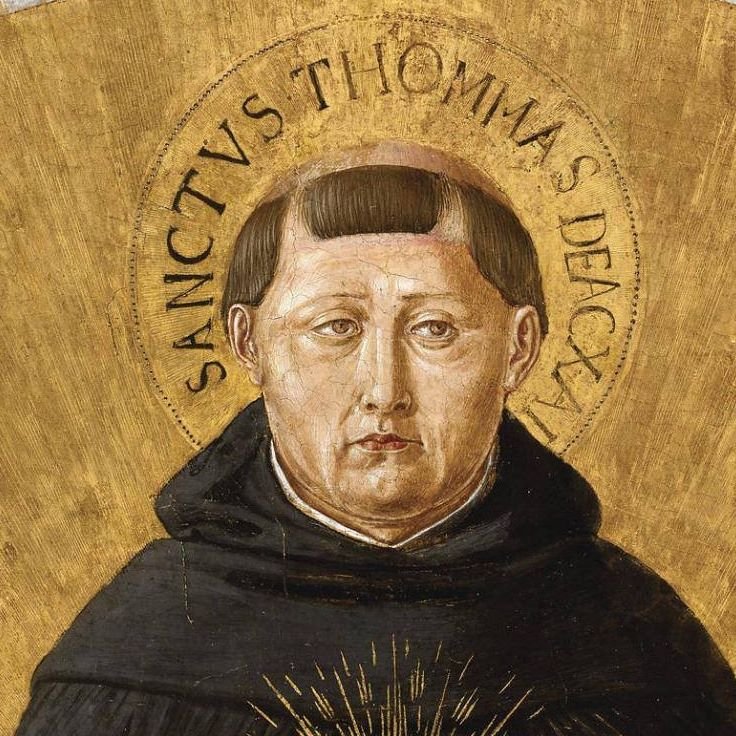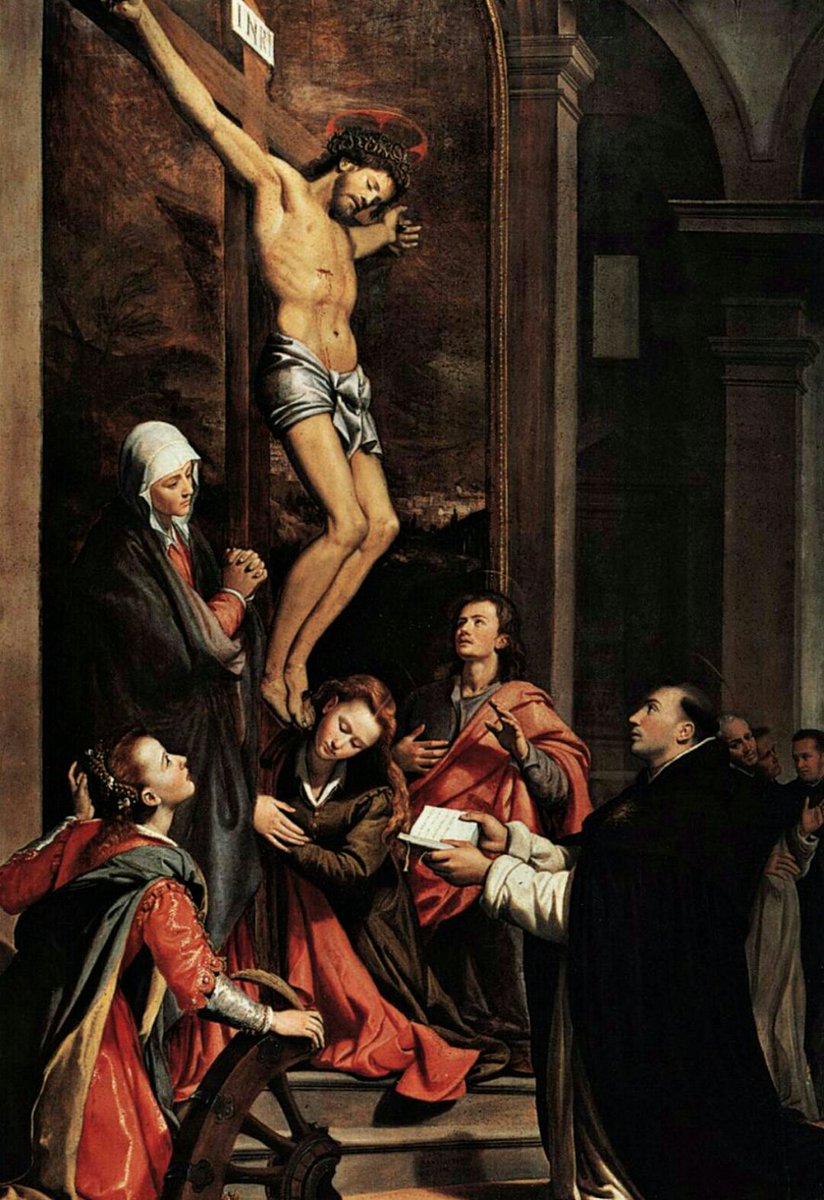Christ Upon the Cross: The Exemplification of Every Virtue
/“For his sake I have accepted the loss of all things and I consider them so much rubbish, that I may gain Christ and be found in him, not having any righteousness of my own based on the law but that which comes through faith in Christ, the righteousness from God, depending on faith to know him and the power of his resurrection and [the] sharing of his sufferings by being conformed to his death, if somehow I may attain the resurrection from the dead.” -Philippians 3:8-11
St. Paul was clear about his need to receive the transforming power flowing from Christ’s death and resurrection. Where do we look to find not only virtue embodied but also the efficacy by which we ourselves may become virtuous? Our patron St. Thomas Aquinas directs our attention to the Cross of Christ as the exemplification of every virtue. In the below text taken from the Office of Readings for his January 28th feast, we are invited to ponder Christ on the Cross as the example of the virtuous life which is open to us by grace. Let us go there with him, and the Saints of every age, who have taken their place beneath that wellspring of virtue. May the waiting and watching of these holiest days draw us to aspire after growth in every virtue. Let us seek His example, we who have so much need of encouragement of the possibility of our ever-fuller transformation in Christ. Lent is undoubtedly a season for growth in holiness, but so too are the fifty days of Easter celebration.
From all of us at the Roccasecca Project, we wish you a graced celebration of Christ’s Resurrection and look forward to being together in the radiance of the Easter Season for our next gathering on Sunday, April 15th. It will be a leisurely afternoon of faith, inspiration and friendship in Christ, entitled “A Church that Moves the World”. Special guests include friends from Italy: Fr. Cassian Folsom, O.S.B., founder of the Benedictine Monastery of Norcia, Marco Sermarini, founder of the Tipi Loschi and Scuola Chesterton of San Benedetto del Tronto and president of the Italian Chesterton Society. Additionally, Dr. Michael Naughton, Director of the Center for Catholic Studies and Dr. Catherine Deavel, professor of Philosophy at the University of St. Thomas will round out the lineup of speakers. The topics of reflection will center on the discovery of the Communion of Saints and friendship as essential to the Church’s mission and the task of renewing and rebuilding Catholic culture. A special feature, along with refreshments and Italian appetizers, will be a tasting of Birra Nursia: a beer brewed by the Monks of Norcia. The afternoon will conclude with Sung Vespers and Benedictine and a chance to remain for confession and Holy Mass. What a way to spend a Sunday afternoon!
For more information on this upcoming event that will be hosted at Holy Cross Catholic Church in Northeast Minneapolis click here. You can visit the Holy Cross parish website.
May God bless you and yours,
The Roccasecca Project
And now St. Thomas Aquinas has a word for us:
The Cross exemplifies every virtue
Why did the Son of God have to suffer for us? There was a great need, and it can be considered in a twofold way: in the first place, as a remedy for sin, and secondly, as an example of how to act.
It is a remedy, for, in the face of all the evils which we incur on account of our sins, we have found relief through the passion of Christ. Yet, it is no less an example, for the passion of Christ completely suffices to fashion our lives. Whoever wishes to live perfectly should do nothing but disdain what Christ disdained on the cross and desire what he desired, for the cross exemplifies every virtue.
If you seek the example of love: "Greater love than this no man has, than to lay down his life for his friends." Such a man was Christ on the cross. And if he gave his life for us, then it should not be difficult to bear whatever hardships arise for his sake.
If you seek patience, you will find no better example than the cross. Great patience occurs in two ways: either when one patiently suffers much, or when one suffers things which one is able to avoid and yet does not avoid. Christ endured much on the cross, and did so patiently, because when he suffered he did not threaten; he was led like a sheep to the slaughter and he did not open his mouth. Therefore Christ’s patience on the cross was great. In patience let us run for the prize set before us, looking upon Jesus, the author and perfecter of our faith who, for the joy set before him, bore his cross and despised the shame.
If you seek an example of humility, look upon the crucified one, for God wished to be judged by Pontius Pilate and to die.
If you seek an example of obedience, follow him who became obedient to the Father even unto death. For just as by the disobedience of one man, namely, Adam, many were made sinners, so by the obedience of one man, many were made righteous.
If you seek an example of despising earthly things, follow him who is the King of kings and the Lord of lords, in whom are hidden all the treasures of wisdom and knowledge. Upon the cross he was stripped, mocked, spat upon, struck, crowned with thorns, and given only vinegar and gall to drink.
Do not be attached, therefore, to clothing and riches, because "they divided my garments among themselves." Nor to honours, for he experienced harsh words and scourgings. Nor to greatness of rank, for "weaving a crown of thorns they placed it on my head." Nor to anything delightful, for "in my thirst they gave me vinegar to drink."
From a conference by Saint Thomas Aquinas, priest, Collatio 6 super Credo in Deum



